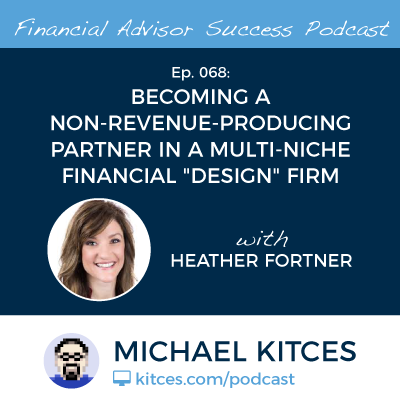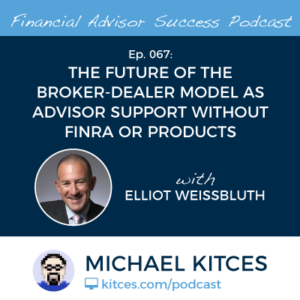Enjoy the current installment of "weekend reading for financial planners" – this week's edition kicks off with the official release of the SEC's new Advice Rule, which aims to lift the standards for brokers giving advice recommendations with a new "Regulation Best Interest" but stops short of imposing a full (and uniform) fiduciary rule, while also raising the possibility that brokers would at least be restricted from using the "advisor" or "adviser" labels (but not for hybrid B/D-RIA firms that actually comprise the overwhelming majority of all brokers in the first place).
Yet also in the news this week is the acknowledgement that advice itself continues to be increasingly central to both the investment adviser and broker-dealer model, with a research study from Cerulli Edge showing that the majority of clients are now receiving some kind of financial planning services from their investment adviser or broker (up from 1/3rd just 5 years ago), and a consumer study from J.D. Power which found that even as Millennials demand higher quality technology from their financial institutions, it's still the financial advisor relationship that actually drives Millennial loyalty to a firm!
From there, we have several articles about the insurance industry, including a recap of the highlights from the recent Intercompany Long-Term Care Insurance (ILTCI) conference about the latest trends in the LTC insurance industry (including that traditional LTC insurance is stabilizing but carriers are still rolling out more flexible hybrid life/LTC policies as well), a discussion of the rules regarding the important but often overlooked 2-year Incontestability Period for life insurance policies, and a look at how the fact that most people have declining needs for life insurance over time means that layering multiple life insurance policies with separate time horizons may be more cost efficient than just buying one large 30-year term policy.
We also have several advisor-technology articles, including a look at how some firms are starting to try to proactively leverage artificial intelligence to support the productivity of financial advisors, a second that looks at the growth of the new United Capital "FinLife CX" platform (which can be bundled to an advisor's existing CRM instead of requiring the advisor to use theirs), and the (re-)emergence of FinFolio 2.0 as a competitor in the space of portfolio accounting and reporting solutions for advisors.
We wrap up with three interesting articles, all around the theme of financial independence and retiring early: the first explores the growth of bloggers that show consumers (especially Millennials) how to live frugally in order to retire early, with the caveat that the most successful bloggers in the space may be achieving early retirement primarily because they earned a well-above-average income, not because of their frugal spending habits; the second goes deeper in exploring the "FIRE" (Financial Independence, Retire Early) movement that is attracting more and more interest from Millennials in particular; and the last is a fascinating discussion about whether and at what age someone should try to retire early to balance out their earnings and life potential with their desired standard of living and freedom... at least, for those who have the incomes that make it possible to save enough to do so in the first place!
Enjoy the "light" reading!

 Welcome, everyone! Welcome to the 68th episode of the Financial Advisor Success Podcast!
Welcome, everyone! Welcome to the 68th episode of the Financial Advisor Success Podcast! Welcome, everyone! Welcome to the 67th episode of the Financial Advisor Success Podcast!
Welcome, everyone! Welcome to the 67th episode of the Financial Advisor Success Podcast!
